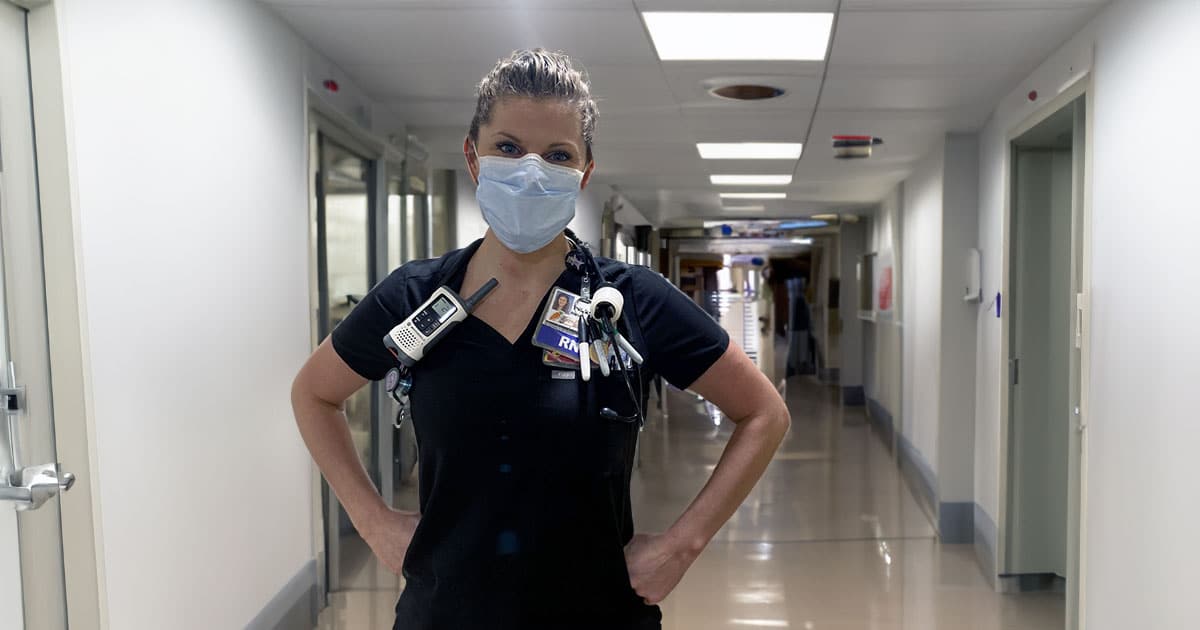Advance your career as an emergency and acute care nurse with a postgraduate course.

Overview
Acute care nursing is the specialised care of patients experiencing short-term but severe illnesses or injuries. Nurses quickly assess and manage health episodes, providing immediate and sometimes lifesaving interventions.
The role takes in everything from monitoring vital signs to administering medications and collaborating with other healthcare professionals.
Advanced study is recommended because you gain core nurse skills that can be used in numerous healthcare environments. Longer programs could be described as advanced practice nursing, with an emphasis on emergency care methods.
Related: Nursing Certification Programs in Australia
What Is Acute Care?
Acute care is the treatment of severe, short-term health issues, typically provided in hospitals. In fact, about 95% of hospital cases are acute care, highlighting its prevalence in hospital settings. This type of care involves quick, responsive treatment for emergencies and sudden medical conditions.
Unlike chronic or long-term care, which deals with ongoing health issues, the focus is on immediate, urgent needs. It differs from routine, sustained management found in long-term care environments. Furthermore, it extends beyond emergency departments, contrasting with the narrower focus of emergency nurses.
Acute and critical care are also distinct. While both address urgent health issues, critical care is more intensive, often occurring in specialised units like ICUs for life-threatening conditions. In contrast, acute care covers a broader spectrum of medical emergencies and urgent health situations.
Role of the Acute Care Nurse
Acute care nurses manage patients with sudden illnesses or injuries. They're skilled in quick assessments and immediate care, coordinating with other healthcare professionals for effective treatment. This role is rewarding, offering the chance to make a real difference in critical situations.
Responding to rapid-onset episodes can be fulfilling. You get to build brief but significant relationships with patients and families at a pivotal time. Unlike critical care nurses who mainly work in ICUs, you have diverse job opportunities in places like general practices, surgeries, and urgent care centres.
Acute care nurses aren't limited to hospitals. They work in other settings, from specialist surgeries to telehealth. They're crucial in post-surgery care and in aged care facilities, responding to emergencies like falls or strokes. Versatile skills and job choice make for an appealing career path.
Postgraduate Courses
Postgraduate courses in this field are available online. The shortest is the four-subject Graduate Certificate, which can be completed in 8 months of part-time study. A specialist Master of Nursing is more comprehensive, at 12 subjects long. A Graduate Diploma (8 subjects) is also available, though most RNs go for the short or long options.
Graduate Certificate
A Graduate Certificate in Acute Care Nursing is the fastest and most specialised postgraduate course. Expect at least two of the four subjects to focus on acute care, with the other two being closely related. The AQF Level 8 course (a bachelor degree is only at Level 7) requires just 8 months of part-time study. Courses are designed for part-time study by full-time nurses. You have the flexibility to study at your convenience, though you will need to keep up with weekly tasks and goals.
UTS Online - Graduate Certificate in Acute Care Nursing
The Graduate Certificate in Acute Care Nursing from UTS Online provides the skills to be alert and responsive to patients enduring rapid-onset episodes. The four subjects cover how to use nursing-sensitive indicators, quickly detect and manage patient deterioration, integrate evidence-based knowledge into clinical practice, and build expertise in a specialty area. It is delivered entirely online and takes 8 months of part-time study. Access to a hospital-based setting is required for practical application. Optionally extend your studies for a Master of Advanced Nursing.
Related: Benefits of a Graduate Certificate in Nursing
Master of Nursing
Become a highly skilled and qualified specialist with a Master of Nursing (Acute Care). The 12-subject degree develops advanced skills, emphasing emergency nursing as part of an advanced practice program. While a graduate certificate is suitable for senior nurse roles and clinical nurse specialist jobs, a master's degree puts you in the frame for positions such as Clinical Nurse Consultant and Nurse Unit Manager.
Related: Is a Masters in Nursing Worth It in Australia?
What Counts as Relevant Experience?
Relevant experience is a common requirement when applying for nurse jobs. In this case, working in a hospital, outside areas like rehabilitation, qualifies. Hospital nurses manage a variety of acute health issues, from sudden injuries to chronic disease exacerbations.
This form of nursing can also be practised in other settings where immediate health crises occur. Places like urgent care centres and outpatient surgery centres are examples. Registered nurses may treat urgent health conditions and often assist in minor surgical procedures.
For postgraduate courses in this field, applicants are typically required to work in a hospital setting. This ensures exposure to diverse time-sensitive medical conditions. Such experience allows students to effectively apply learned techniques in their practice.




